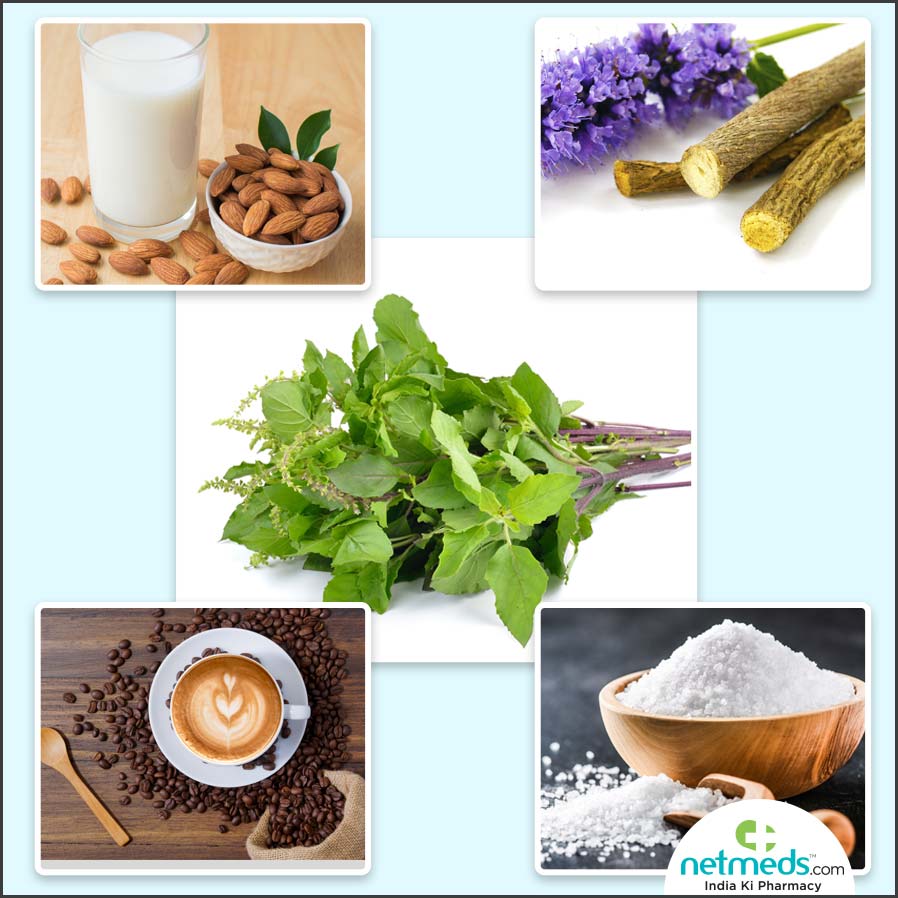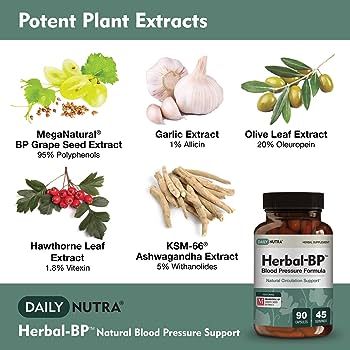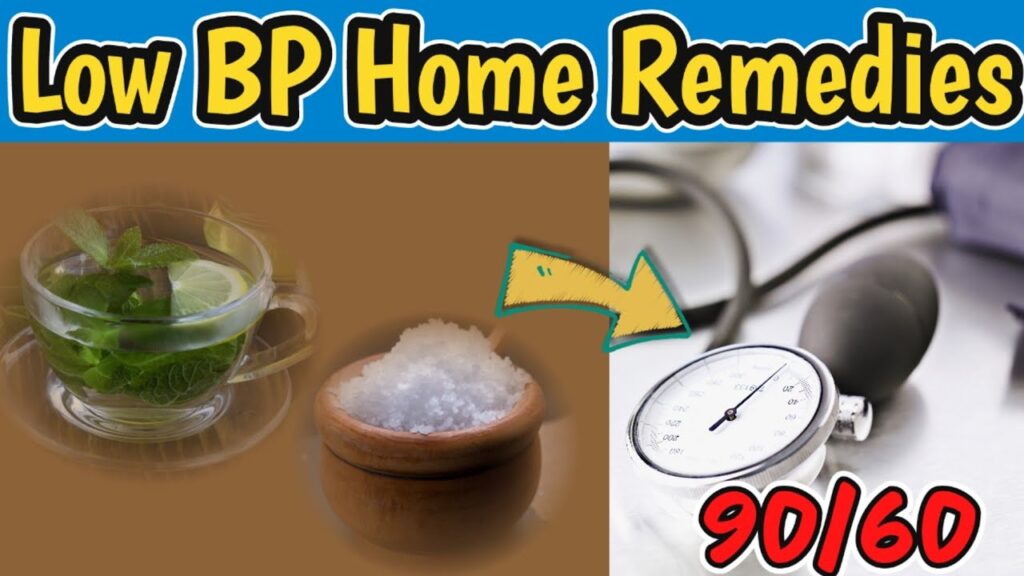Have you ever wondered if there are natural remedies to help with low blood pressure? Well, you’re in luck! In this article, we will explore the world of herbs that can help balance your blood pressure and improve your overall health. So, if you’re tired of relying solely on medication and are looking for alternative solutions, keep reading to discover the power of nature.
When it comes to low blood pressure, it’s important to find a gentle way to balance it without causing any negative side effects. That’s where herbs come in. There are several herbs that have been used for centuries to aid in regulating blood pressure levels naturally. From hawthorn to ginger, these herbs have properties that can support the cardiovascular system and promote healthy blood flow. In the upcoming article, we will delve into the benefits of each herb and how they can be incorporated into your daily routine. So, get ready to learn more about these incredible herbs and how they can be your allies in maintaining a balanced blood pressure.
Understanding Low Blood Pressure
What is low blood pressure?
Low blood pressure, also known as hypotension, is a condition characterized by blood pressure that is lower than the normal range. It is generally defined as blood pressure below 90/60 mmHg. Blood pressure is the force exerted by the blood against the walls of the arteries as it circulates through the body. Low blood pressure can cause symptoms and complications, and it is important to understand its causes and how it can be managed.
Causes of low blood pressure
There are several possible causes of low blood pressure. Some people naturally have low blood pressure and do not experience any symptoms or complications. Others may develop low blood pressure due to various factors, including:
-
Dehydration: When the body does not have enough fluids, it can lead to low blood pressure.
-
Medications: Certain medications, such as those used to treat high blood pressure, heart conditions, or depression, can lower blood pressure.
-
Heart problems: Conditions such as heart valve problems, heart failure, or heart attack can result in low blood pressure.
-
Endocrine disorders: Disorders of the adrenal glands or thyroid can affect blood pressure regulation.
-
Pregnancy: During pregnancy, blood pressure may drop, especially in the first 24 weeks.
-
Nutritional deficiencies: A lack of certain nutrients, such as vitamin B-12 or folate, can contribute to low blood pressure.
Symptoms of Low Blood Pressure
Low blood pressure can manifest with various symptoms, which may vary from person to person. Here are some common symptoms of low blood pressure:
Dizziness and lightheadedness
Feeling lightheaded or dizzy is a common symptom of low blood pressure. You may experience a sensation of spinning or feeling off balance, especially when getting up from a sitting or lying position. This is known as postural or orthostatic hypotension.
Fainting and loss of consciousness
In severe cases, low blood pressure can cause fainting or loss of consciousness. This occurs when there is a temporary decrease in blood flow to the brain, depriving it of oxygen and causing a brief loss of consciousness. It is important to seek medical attention if you experience fainting episodes.
Fatigue and weakness
Low blood pressure can lead to feelings of fatigue and weakness. You may notice a lack of energy and find it difficult to perform everyday tasks. This can be attributed to reduced blood flow to the muscles and organs, resulting in decreased oxygen and nutrient delivery.
Diagnosis and Medical Treatment
If you experience symptoms of low blood pressure, it is important to seek medical advice for diagnosis and appropriate treatment. A healthcare professional will take your blood pressure readings and consider your symptoms and medical history. They may also perform certain medical tests to identify any underlying causes of low blood pressure. These tests may include:
Medical tests for low blood pressure
-
Blood tests: To check for any nutritional deficiencies or other underlying medical conditions.
-
Electrocardiogram (ECG): To assess the electrical activity of the heart.
-
Echocardiogram: An ultrasound of the heart to evaluate its structure and function.
-
Stress test: To monitor your blood pressure and heart activity while exercising.
Prescription medications for low blood pressure
In some cases, medications may be prescribed to manage low blood pressure. These may include:
-
Fludrocortisone: A medication that helps increase blood volume and raise blood pressure.
-
Midodrine: A medication that constricts blood vessels and raises blood pressure.
-
Pyridostigmine: A medication that improves nerve signals and can help regulate blood pressure.
It is important to follow your healthcare professional’s advice and take medications as prescribed.
Benefits of Herbs for Low Blood Pressure
While medical treatments are available for low blood pressure, some individuals may prefer natural remedies. Herbs can offer a range of benefits for managing low blood pressure, including:
Herbs as natural remedies
Many herbs have been traditionally used to help balance blood pressure. They contain various compounds that can help relax blood vessels, improve circulation, and support overall cardiovascular health. Using herbs as natural remedies may provide an alternative or complementary approach to managing low blood pressure.
Reducing the risk of side effects
Prescription medications for low blood pressure can sometimes cause side effects, such as dizziness, fatigue, or digestive disturbances. Herbal remedies, when used correctly and under the guidance of a healthcare professional, may help reduce the risk of such side effects. However, it is important to remember that herbs can also have potential interactions with other medications, so it is essential to consult with a healthcare professional before incorporating them into your treatment plan.
Herbs for Increasing Blood Pressure
If low blood pressure is accompanied by symptoms such as dizziness and fatigue, herbs that help increase blood pressure may be beneficial. Here are some herbs known for their potential to raise blood pressure:
Ginger
Ginger is a versatile herb with various health benefits, including its potential to increase blood pressure. It contains compounds that can help stimulate blood flow and promote healthy circulation. Ginger can be consumed in various forms, such as fresh ginger root, ginger tea, or added to meals.
Licorice root
Licorice root has been used in traditional medicine for its potential to raise blood pressure. It contains glycyrrhizin, a compound that can help regulate blood pressure. However, it is important to note that licorice root should be used in moderation and under the guidance of a healthcare professional, as excessive consumption may lead to side effects.
Rosemary
Rosemary is an aromatic herb widely used in culinary applications. It also has potential benefits for low blood pressure. Rosemary contains compounds that can help increase peripheral vascular resistance, leading to a rise in blood pressure. You can enjoy rosemary by adding it to your cooking, preparing herbal teas, or using it in aromatherapy.
Herbs for Calming Blood Pressure
On the other hand, if low blood pressure is accompanied by symptoms such as dizziness and lightheadedness, herbs with calming properties may be helpful. Here are some herbs known for their potential to help calm blood pressure:
Hawthorn
Hawthorn is a herb widely recognized for its cardiovascular benefits. It has been traditionally used to support heart health and regulate blood pressure. Hawthorn contains flavonoids and other compounds that can help relax blood vessels and improve blood flow. It is commonly consumed as a herbal tea or taken as a supplement.
Valerian root
Valerian root is well-known for its calming effects on the nervous system. It can help reduce anxiety and promote relaxation, which may indirectly support healthy blood pressure levels. Valerian root is often consumed as a herbal tea or taken in supplement form.
Passionflower
Passionflower is a herb that has been used for centuries to promote relaxation and relieve anxiety. It contains compounds that can help calm the nervous system, potentially benefiting blood pressure. Passionflower can be consumed as a herbal tea, taken as a supplement, or used in combination with other calming herbs.
Herbs for Improving Circulation
Improving circulation is crucial for maintaining optimal blood pressure levels. Here are some herbs known for their potential to improve circulation:
Ginkgo biloba
Ginkgo biloba is a well-known herb that has been used for centuries in traditional medicine. It contains flavonoids and terpenoids, which can help improve blood flow and circulation. Ginkgo biloba is available in various forms, including capsules, tablets, or liquid extracts.
Cayenne pepper
Cayenne pepper is a fiery spice that can help improve circulation. It contains capsaicin, a compound that can warm the body and promote blood flow. Cayenne pepper can be added to meals or taken in capsule form.
Garlic
Garlic is a common culinary herb with potential cardiovascular benefits. It contains allicin, a compound that can help improve circulation and support overall heart health. Incorporating garlic into your meals or taking garlic supplements may help promote healthy blood pressure levels.
Preparing Herbal Remedies
To harness the benefits of herbs for low blood pressure, you can prepare various herbal remedies. Here are some methods you can explore:
Making herbal teas
Herbal teas are a popular way to enjoy the benefits of herbs. You can prepare herbal teas by steeping dried herbs in hot water for a few minutes. It is important to follow specific instructions for each herb and consult with a healthcare professional if you have any underlying health conditions or are taking medications.
Infusing oils and tinctures
Infusing oils and creating tinctures are other methods of using herbs for their potential benefits. Infused oils can be used topically for massage or added to bathwater for a soothing experience. Tinctures are liquid extracts of herbs, typically diluted in alcohol or glycerin. They can be taken orally or used externally.
Incorporating Herbs Into Your Lifestyle
In addition to herbal remedies, incorporating herbs into your lifestyle can help support healthy blood pressure levels. Here are some ways to do so:
Dietary changes and herbal supplements
Eating a balanced diet with a focus on whole foods, including fruits, vegetables, whole grains, lean proteins, and healthy fats, can contribute to overall cardiovascular health. You can also consider adding herbal supplements to your routine, but it is important to consult with a healthcare professional to determine the appropriate dosage and potential interactions with other medications.
Yoga and relaxation techniques
Practicing yoga, meditation, deep breathing exercises, or other relaxation techniques can help reduce stress and promote overall well-being. Stress management is crucial for maintaining healthy blood pressure levels, and incorporating these techniques into your lifestyle can have a positive impact.
Conclusion
Gentle Pressure Balance: Herbs for Low Blood Pressure
Managing low blood pressure is important for overall health and well-being. While medical treatments are available, incorporating herbs as natural remedies can offer additional support. Herbs have been used for centuries to help balance blood pressure, and they can provide a gentle and holistic approach to managing this condition. By understanding the potential benefits of herbs for raising or calming blood pressure and improving circulation, individuals can empower themselves to take control of their health. Remember to consult with a healthcare professional before starting any herbal remedies or making significant changes to your treatment plan. With patience and consistency, herbs can be a valuable tool in achieving gentle pressure balance and maintaining optimal health.




